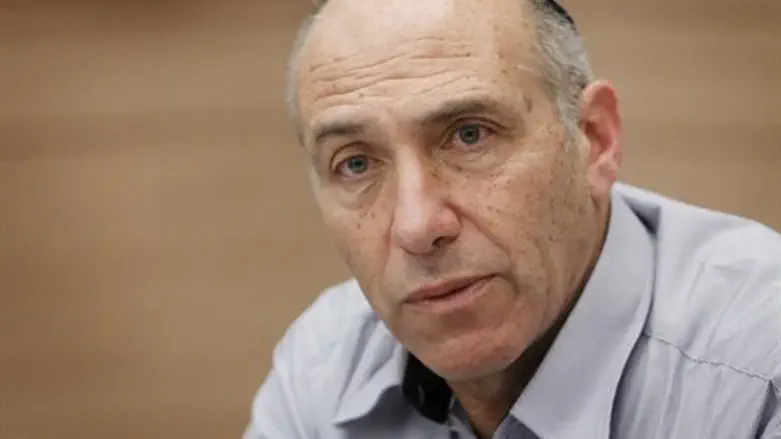
A special Knesset hearing by the Committee for Internal Affairs met Tuesday to evaluate how the national government offices handled the chaos of this week's historic snowstorm.
The committee, which was headed by MK Miri Regev (Likud), was also open to government officials, defense experts, and medics from various rescue organizations.
Regev opened the hearing by dramatically declaring that, "Jerusalem was under siege for four days. In modern times this does not seem logical to me."
The MK called for an evaluation of what worked and what failed in the cleanup efforts after the storm; she called for the committee to acknowledge problems that arose and not to overlook the events of the past week, in order to prepare for future weather calamities.
MK Moti Yogev (Jewish Home), Member of the Knesset Foreign Affairs and Defense Committee, warned of future loss of life in the event that the state did not make better preparations for an emergency.
Early in his speech, Yogev thanked the various rescue teams.
"[I express] appreciation and gratitude to all parties that this mission, the Israel Police, IDF, IEC, MDA, fire, employees and volunteers authorities and many good citizens who contributed their capital and their time. Everyone spent nights during the storm that hit us to rescue people from the distress and save lives," he commended.
Yogev then turned his attention away from individual organizations, and criticized the central government's handling of the situation.
"It became clear on Thursday afternoon [that] the expected extent of the storm was greater than originally estimated," Yogev noted. "Between Thursday and Friday night thousands of civilians, babies and old people were stuck in their cars overnight on the roads come up to Jerusalem. In the north, homes suffered from cold after electricity stopped."
Yogev insisted that the responsibility "was on the state, namely the government, to approve a partial emergency - similar to the situation that existed during the Carmel [Forest] fire."
The MK elaborated, "it was the responsibility of either the Home Front Command or the Interior Ministry [. . .] to make a concentrated effort to assess the situation and centralize the many resources available - the IDF, the police, rescue officials, and volunteers - to foster an open means of communication [between the groups] and unite [. . .] to provide as much relief to citizens in distress as possible during this event."
Yogev also noted the redundancy between government organizations in handling the storm - particularly between the Ministry of Defense, the National Emergency Authority, and the Home Front Command. He called for establishing a hierarchy between organizations.
Yogev also called on the failure of the Israeli Electric Company to deal effectively with the rampant power outages across the country. At least 29,000 people lost power during the storm, and isolated communities in Judea and Samaria were without power and running water for 4 days or more.
"With all due respect to Israeli Electric Company employees and the police, who worked night and day, there is a need to test the performance of directors and the ability of these entities to work together and collaborate between the different regions in real time," he stated.
Yogev also slammed media organizations, some of which had closed Friday morning due to the inclement weather, stressing the need for open communication during an emergency.
He concluded, "this event was a 'test' to see what would happen in the event of a war and other, far more serious situations. We have to work more efficiently so that we can be more prepared, provide assistance, and even save lives [in the future]."